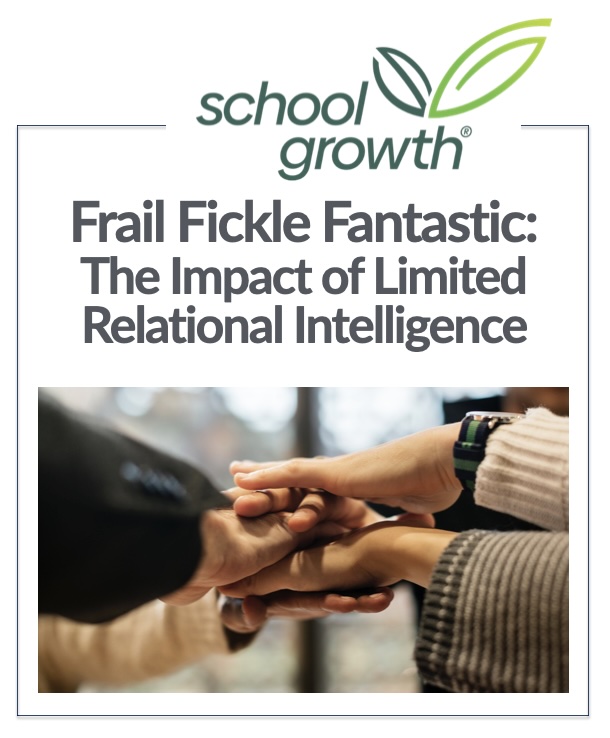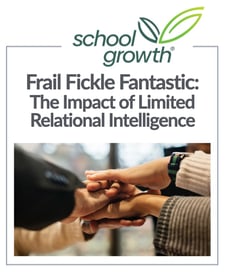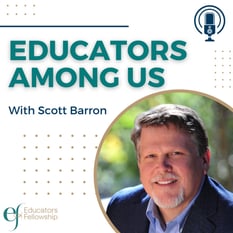
Frail Fickle Fantastic: The Impact of Limited Relational Intelligence

As educators, our mission in this life-changing work is way beyond just surviving. We want to thrive! But achieving that high level of experience requires energy and passion combined with habits of excellence that sustain both.
Being human is hard. Educating humans is even harder, as we guide children, parents, fellow educators, and others into greater levels of growth and maturity.
Some days this seems like an impossible task because we encounter people on the team who can at various times be frail, fickle, and/or fantastic. This produces a wide range of relational challenges since we are so reliant on each other. Let's explore these characteristics and the impact of limited relational intelligence in more detail.
The whole idea of compassion is based on a keen awareness of the interdependence of all these living beings, which are all part of one another, and all involved in one another.
— Thomas Merton
Experiencing joy as an educator is way easier when we humbly recognize our interdependent nature and choose to do what it takes to be consistent, faithful partners on this journey together.
But too often we encounter colleagues who are struggling with underdeveloped relational intelligence and skills. Here are three that are most common:
The Frail struggle to endure because they are vulnerable to the mindset of fear and discouragement. They exhibit low levels of energy and diminished strength, causing them to give up when faced with resistance or times of stress.
The Fickle submit to unreliable emotions and shift their loyalties based on what is most convenient. This vacillating allegiance undermines trust and contributes to the destructive silos that emerge from unhealthy competitive alliances.
The Fantastic energize the campus with unusual gifting only to quickly leave a void as they (voluntarily or involuntarily) move on to the next job. Their frenetic pace and bravado entice a following, but eventually the true character emerges with toxic results.
When an educator becomes just one of these three, it has significant negative consequences for the organization's culture. Those who evolve some combination of them are exhausting in their unpredictable demeanor and disruptions.
Friend or foe?
Team player or Me player?
Depends on the moment and the audience.
Trust is the glue of life. It's the most essential ingredient in effective communication. It's the foundational principle that holds all relationships.
— Stephen Covey
An educator without discipline is often unpredictable and unstable because of the struggle with a divided heart compounded by the conflict of being double-minded.
Our promises and productivity are our most important way of contributing to the future of our students and school, enabling trusted engagement. Self-discipline is therefore crucial to our work. Or, even better, we create processes, practices, and accountability that make it almost impossible to fail in our attitude and delivery.
We are more likely to achieve that level of relational intelligence when:
- We know who we are
- We know who's we are
- We know what we want
- We know what we fear
We invite you to practice the habits of excellence, mastering those small but consistent behaviors that make you and those around you so much better.
Love'em and Lead'em!
Checkout all the episodes of the Educators Among Us Podcast

.png?width=1000&height=199&name=SG-Logo3-Transparent-1000x199px%20(1).png)



.jpg?width=100&height=100&name=elementary%20student%20squeezing%20a%20stuffed%20animal%20while%20holding%20their%20breath%20(1).jpg)

